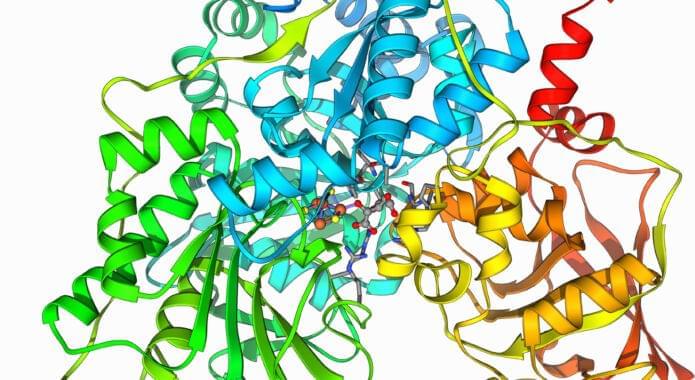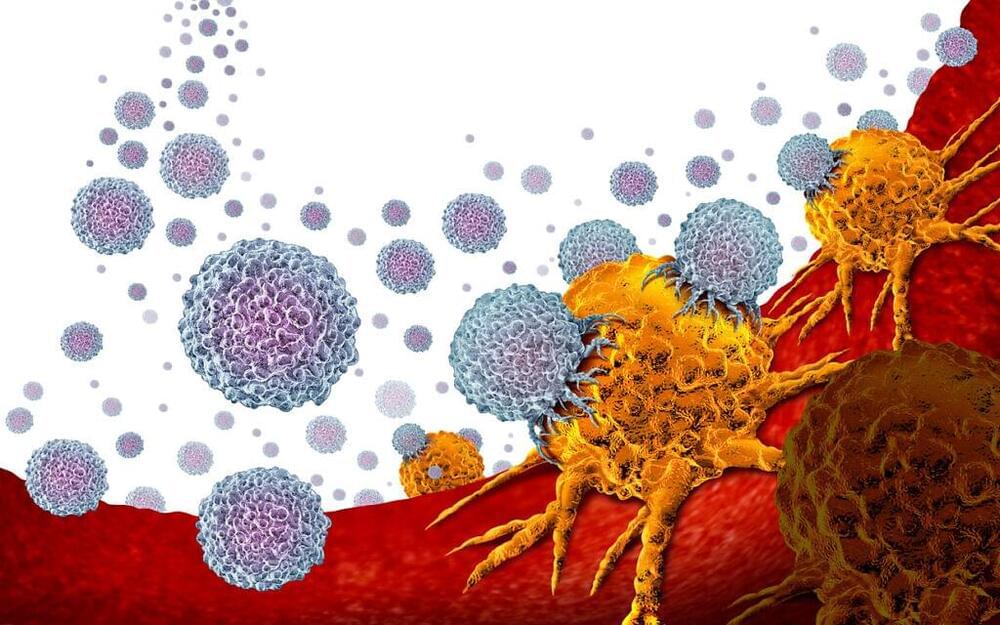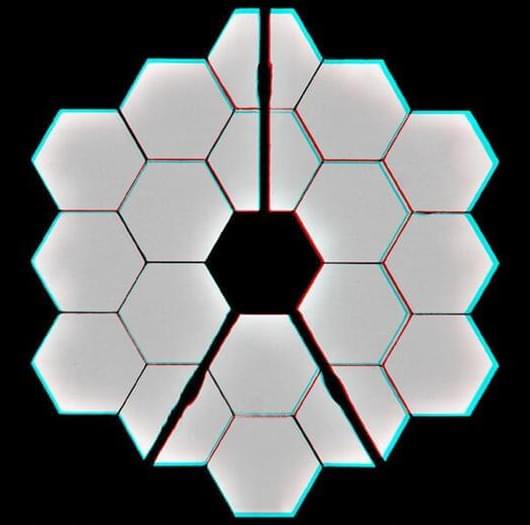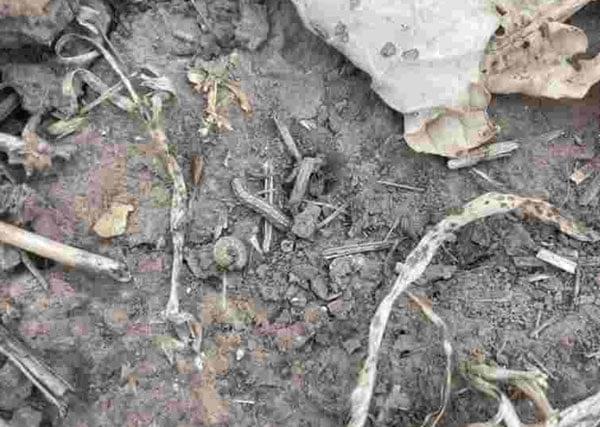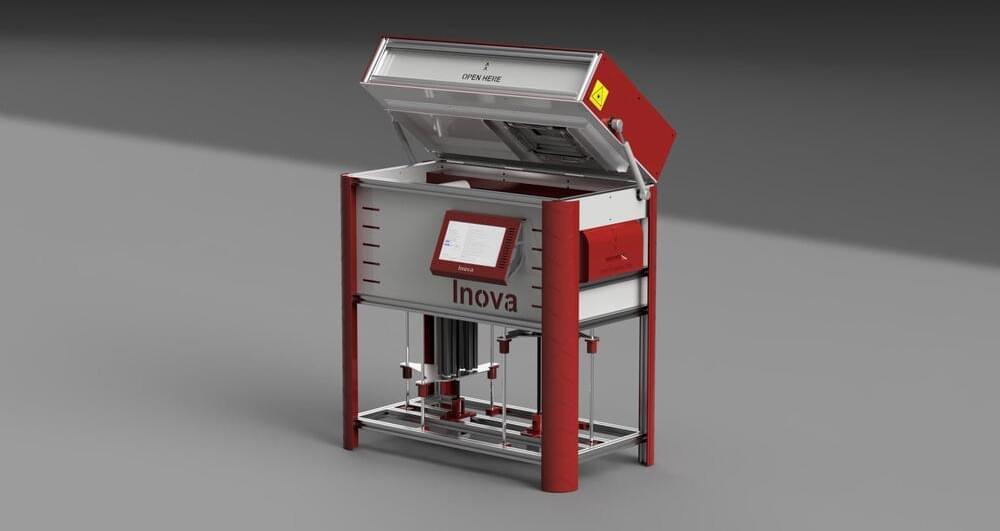Page 5359
Mar 26, 2022
The Speed of Sound on Mars Is Strangely Different, Scientists Reveal
Posted by Genevieve Klien in categories: futurism, space
Scientists have confirmed the speed of sound on Mars, using equipment on the Perseverance rover to study the red planet’s atmosphere, which is very different to Earth’s.
What they discovered could have some strange consequences for communication between future Martians.
The findings suggest that trying to talk in Mars’ atmosphere might produce a weird effect, since higher-pitched sound seems to travel faster than bass notes. Not that we’d try, since Mars’ atmosphere is unbreathable, but it’s certainly fun to think about!
Mar 26, 2022
Israeli lab says it has made safe a powerful — but toxic — cancer treatment
Posted by Genevieve Klien in category: biotech/medical
The research has been snapped up by pharmaceutical giant Teva, and according to the lead author could mean an ‘arsenal of new drugs’.
Mar 26, 2022
New discovery on the sun has captured scientists’ attention
Posted by Genevieve Klien in category: space
The next chance to see the northern lights may be coming soon after astronomers spotted a large object on the surface of the sun.
Mar 26, 2022
Rejoice! The Webb Telescope Has Released Yet Another Selfie
Posted by Alberto Lao in category: space travel
The James Webb Telescope is now aligned and ready for action — which, in the case of this social media-famous spacecraft, includes taking selfies.
Mar 26, 2022
SpaceX’s Latest Spacecraft Officially Has a Name
Posted by Alberto Lao in category: space travel
First, there was Endeavor. Then there was Resilience and Endurance.
Now, the fourth SpaceX Crew Dragon spacecraft, sending the fourth operational crew to the International Space Station, has a name as well.
“FREEDOM!!” NASA astronaut Kjell Lindgren, commander of the upcoming mission dubbed Crew-4, tweeted enthusiastically. “Crew-4 will fly to the International Space Station in a new Dragon capsule named ‘Freedom.’”.
Mar 26, 2022
Army Cutworm Reaching Treatment Thresholds in Kansas Winter Canola
Posted by Shubham Ghosh Roy in categories: chemistry, economics
With the onset of warmer temperatures, winter canola is breaking dormancy and army cutworms are now present in fields across Kansas. Significant army cutworm pressure has been observed in fields northwest of Caldwell in Sumner County.
Army cutworms feed aggressively and significant damage can occur in a short period of time. Smaller plants are most susceptible. The larvae feed on the leaf tissue, leaving the plants with a fed-on appearance (Figure 2). When minor feeding is observed, you may find leaves severed from the plant and laying on the soil surface. Where infestations are high, army cutworms will remove all leaf tissue, leaving only the base of the stem (Figure 3).
The economic threshold for chemical control is 1–2 cutworms per foot of row. Army cutworms behave nocturnally and typically spend the daylight hours below ground. When scouting, it is critical to dig in the soil around individual canola plants to find the larvae. However, it is not unusual to find army cutworm above ground when populations are high (Figure 1). The larvae are greenish-gray and often curl up into a C-shape.
Mar 26, 2022
DIY SLS 3D Printer Getting Ready To Print
Posted by Shubham Ghosh Roy in categories: electronics, materials
Ten years ago the concept of having on our desks an affordable 3D printer knocking out high quality reproducible prints, with sub-mm accuracy, in a wide range of colours and material properties would be the would be just a dream. But now, it is reality. The machines that are now so ubiquitous for us hackers, are largely operating with the FDM principle of shooting molten plastic out of a moving nozzle, but they’re not the only game in town. A technique that has also being around for donkeys’ years is SLS or Selective Laser Sintering, but machines of this type are big, heavy and expensive. However, getting one of those in your own ‘shop now is looking a little less like a dream and more of a reality, with the SLS4All project by [Tomas Starek] over on hackaday.io.
[Tomas] has been busy over the past year, working on the design of his machine and is now almost done with the building and testing of the hardware side. SLS printing works by using a roller to transfer a layer of powdered material over the print surface, and then steering a medium-power laser beam over the surface in order to heat and bond the powder grains into a solid mass. Then, the bed is lowered a little, and the process repeats. Heating of the bed, powder and surrounding air is critical, as is moisture control, plus keeping that laser beam shape consistent over the full bed area is a bit tricky as well. These are all hurdles [Tomas] has to overcome, but the test machine is completed and is in a good place to start this process control optimisation fun.
Hardware-wise, the frame is the usual aluminium extrusion and 3D printed affair, with solid aluminium plates all over the place where needed. Electronics are based around a Raspberry Pi (running Klipper) with a BigTreeTech 1.4 turbo mainboard handling the interfacing. The 5W blue laser is steered over the powder surface using a pair of galvanometers, which sounds easier to get right than it will be — we fully expect there to be some ‘fun’ to control the spot size and shape as well as ensure that it stays consistent over the full area of the build surface. Definitely fun times, and fingers crossed that [Tomas] irons out the details and gets some good prints out of it soon!
Mar 26, 2022
Researchers develop PERC solar cells with 100% recycled silicon
Posted by Shubham Ghosh Roy in categories: climatology, economics, solar power, sustainability
The installations of photovoltaic (PV) solar modules are growing extremely fast. As a result of the increase, the volume of discarded solar modules that end up on the recycling market annually will grow at the same rate in the near future. Currently, the aluminum, glass, and copper of the discarded modules are reprocessed; however, the silicon solar cells are not.
Now, researchers from the Fraunhofer Center for Silicon Photovoltaics CSP and the Fraunhofer Institute for Solar Energy Systems ISE, together with the largest German recycling company for PV modules, Reiling GmbH & Co. KG, have built new PERC solar cells with 100% crystalline silicon recycled from end-of-life photovoltaic panels.
The team has developed a process for recovering the silicon material with funding from the German Federal Ministry for Economic Affairs and Climate BMWK. The technique is claimed to recycle silicon from different types of crystalline silicon PV modules, regardless of manufacturer and origin.
Mar 26, 2022
4-word Facebook message you must ignore
Posted by Muhammad Furqan in categories: cybercrime/malcode, finance
You’ve probably received this message already — just don’t open it. Details:
Facebook Messenger users have been told to ignore a four-letter message that could lead to disastrous financial consequences or stolen personal information.
Scammers use the instant messaging platform to send out a four-word “look what I found …” message, and a link from compromised accounts. These message also include emojis as well, 7News reports.
Continue reading “4-word Facebook message you must ignore” »
